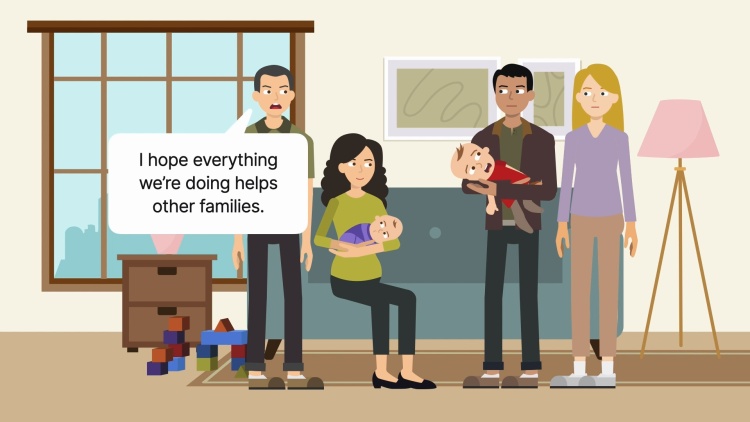Greenberg v. Miami Children’s Hospital Research Institute
United States District Court for the Southern District of Florida
264 F. Supp. 2d 1064 (S.D. Fla. 2003)
- Written by Craig Conway, LLM
Facts
Canavan disease was a very rare and always fatal degenerative brain disorder affecting young children. There was no cure and those afflicted typically did not live past the age of ten. Greenberg (plaintiff) approached Dr. Matalon (defendant), a research physician, to discover the gene sequence of Canavan disease so that tests could be developed to determine carriers of the disease. Greenberg convinced Canavan families worldwide to donate tissue, blood, and financial support to Matalon’s project. Through the efforts of Greenberg and Matalon, a Canavan registry was developed containing epidemiological, medical, and other information about the families who had donated material. Matalon then became affiliated with Miami Children’s Hospital Research Institute (the Institute) (defendant) and Miami Children’s Hospital (MCH) (defendant), but continued his research work on Canavan disease with Greenberg and the participating families by accepting additional tissue and blood samples and financial support. In 1993, Matalon isolated the gene responsible for Canavan disease and a year later, unbeknownst to the families, filed a patent application for the genetic sequence he identified. Greenberg and the families were never informed that Matalon intended to seek a patent on the Canavan research. In 1997, Matalon was listed as the inventor of the gene patent and he and MCH began restricting any activity related to Canavan disease without compensation. Greenberg and the families filed a six-count complaint against Matalon and MCH alleging lack of informed consent, breach of fiduciary duty, unjust enrichment, fraudulent concealment, conversion, and misappropriation of trade secrets and sought damages along with patent royalties. Greenberg and the families claimed that all tissue, blood, and financial support provided to Matalon was done for the purpose of carrier detection, identifying mutations of the disease, and providing testing that would benefit the public at large. Greenberg requested a permanent injunction restraining Matalon and the Institute from enforcing the Canavan gene patent rights. The district court rejected Greenberg’s claims and Greenberg appealed.
Rule of Law
Issue
Holding and Reasoning (Moreno, J.)
What to do next…
Here's why 907,000 law students have relied on our case briefs:
- Written by law professors and practitioners, not other law students. 47,100 briefs, keyed to 996 casebooks. Top-notch customer support.
- The right amount of information, includes the facts, issues, rule of law, holding and reasoning, and any concurrences and dissents.
- Access in your classes, works on your mobile and tablet. Massive library of related video lessons and high quality multiple-choice questions.
- Easy to use, uniform format for every case brief. Written in plain English, not in legalese. Our briefs summarize and simplify; they don’t just repeat the court’s language.





